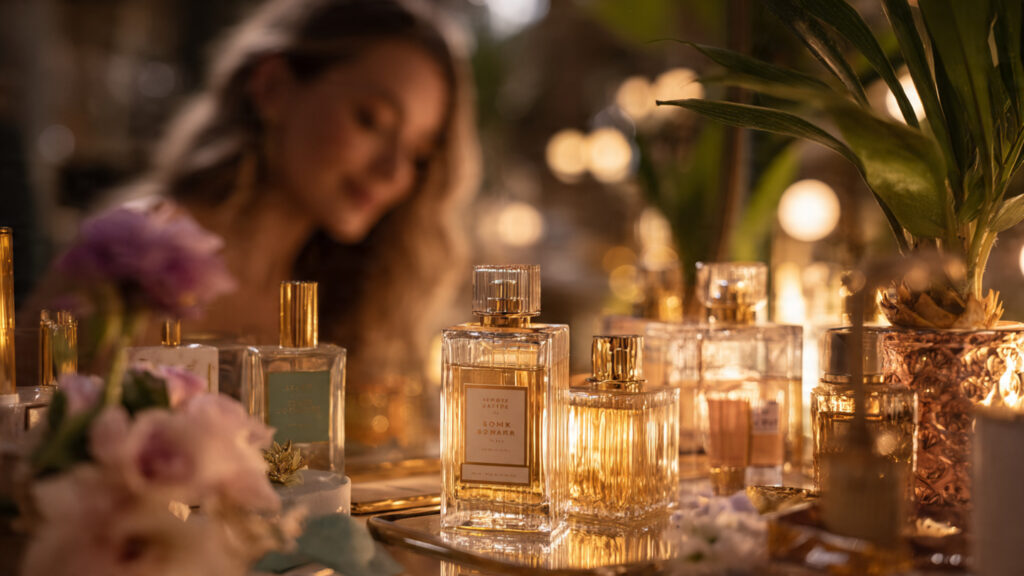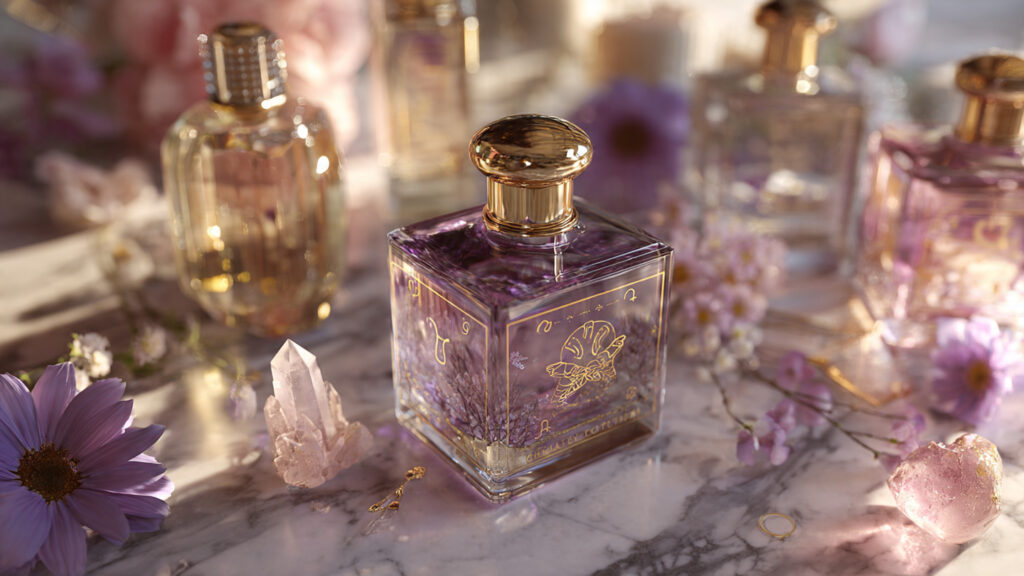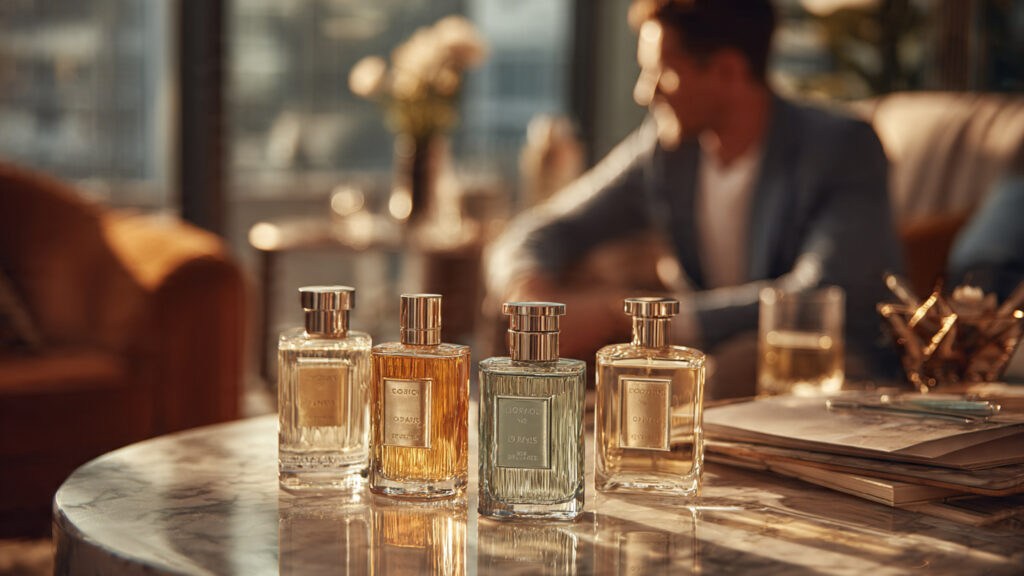Perfumes are usually selected by people based on their desired image, personality or mood. As an instance, a peaceful individual would enjoy gentle and flowery scents whereas a confident person might choose loud and bold fragrances. A perfume that brings back pleasant memories might be more demanding. Trends, cultural influences and even individual personal connections with particular fragrances all have an impact. Essentially picking a favorite perfume is not random rather it is influenced by memories, feelings and self expression, making fragrance a significant component of one’s personality.

The power of memory and emotional association
When selecting your favorite perfume memories and emotional connection are important factors. Specific smells can rapidly recall memories or emotions as our sense of smell is closely linked to the memory and emotion regions. A scent may make you feel comforted or thrilled by bringing back memories of your past beautiful time, someone special or a joyful occasion. Here we can determines why we like one scent over another. Because of the memories and feelings they generate people usually select perfumes that make them feel confident, relaxed or pleased. In short a favorite perfume is about more than just its smell it is about the emotions and memories it creates.
Personality and self expression
People choices of scents are mostly determined by their personalities and ways of expressing themselves. Your preferred fragrance usually conveys your personality, attitude and your image. Someone who likes sweet or floral fragrances can be viewed as kind, friendly and decent. Whereas someone who enjoys spicy or woodsy fragrances might look as bold, confident and adventurous. Perfume conveys emotions without using words. Because certain scents can bring back special experiences by memory, this allows you to express your personality, creativity and even recollections. Psychologically picking a scent is all about attraction and comfort. It makes you feel good and has the power to affect how other people see you.
Subconscious Attractions and Confidence in Perfume Choices
There are other factors to consider while selecting a scent. Our subconscious mind or the part of the mind that operates automatically without our conscious awareness has a significant impact on many of our decisions. This subconscious is extremely powerful and can affect our emotions how we are judged by others, and even our level of confidence.
Confidence Boost
Not only does perfume smell good, but it also changes our emotions. Wearing a fragrance we enjoy quickly boosts our confidence. This occurs due to enhancement of mood. Pleasant smells cause the brain to release feel good hormones. We become happier, calmer, and more active as a result. We incorporate a signature fragrance into our appearance. The proper perfume can make us feel confident, elegant, or enigmatic. Interactions with other people can be impacted by a scent’s confidence. When you smell good, people could react more favorably, which boosts your confidence. Like an invisible decoration, perfumes affect how we see ourselves and how others see us.
How Subconscious and Confidence Work Together
When combined confidence and subconscious attraction have a powerful effect. Scents that generate strong emotions are attracted to you by your subconscious. Wearing that fragrance lifts your spirits and gives you confidence. You become more comfortable attractive and expressive when you have greater confidence. Positive comments from other people make you feel more attached to that scent. This cycle explains why some perfumes feel perfect to some people they both boost your confidence and help you connect with your inner self.
Psychological Profiling by Scent Families
We have an extremely strong sense of smell. It may produce feelings and memories as well as an impact on how other people see us. Fragrance specialists and psychologists have observed that peoples tastes for particular fragrances often represent their lifestyle mood or personality. We refer to this concept as psychological profiling using scent families.
What Are Scent Families
Scent families are groups of perfumes. Every family has a unique scent and emotional impact. The primary fragrance families consist of Floral scents such as lavender rose and jasmine. Woody are earthy cozy aromas such as patchouli cedar or sandalwood. Oriental are rich exotic fragrances of amber vanilla and spices. Citrus are the notes of lemon orange and green that are clean light and spicy. Fruity have smells of apples cherries and peaches that are both sweet and acidic. Aquatic are airy aquatic fragrances suggestive of rain or the ocean.
Using Psychological Profiling
Through this system which regulates emotions and memory, our brain associates scents with feelings. A scent may bring back memories of joy coziness or exploration. Therefore choosing a perfume is about more than simply how it smells it is also about how it makes us feel. This psychological profiling is occasionally used by perfume companies to make fragrance recommendations. For example an Asian or woody perfume would be recommended to someone confident and daring while floral or aquatic scents might be recommended to someone peaceful and sensitive.
Biological and Evolutionary Factors in Choosing Perfume
Role of Biology in Scent Preference
Our biology has an important impact on the smells we choose. This system which controls emotions memories and sensations of attraction is directly connected to the sense of smell. Thus scents have the power to immediately create feelings of happiness relaxation or excitement. For example fresh or natural smells can help us relax because they remind us of pleasant and safe settings but sweet or fruity smells might make us feel good since our brain naturally connects them with food and energy. Therefore our choices for perfumes are not random rather they are shaped by how our bodies and minds respond to various scents.
Genetic Influence on Perfume Choice
The types of smells we enjoy can be affected by our DNA. The Major Histology Complex a component of our immune system that influences bodily chemistry is one significant factor. According to studies people often react to fragrances that are different from their own molecules because they may suggest a more suitable and healthy partner. Because of this two people may have quite different views on the same perfume what one person finds wonderful may be terrible to another. Thus our unique genetic composition affects our choice of fragrances.
Pheromones and attraction
Without our permission our bodies create chemicals called pheromones which are organic chemical signals. These substances can affect our attraction to other people. Because pheromones may represent factors like compatibility longevity and health they are important in human attraction and partner selection. Some fragrances can make people feel more attracted to one another since some perfumes are made to duplicate or enhance these natural signals. From an evolutionary standpoint our forefathers were able to select healthy partners and raise their chances of having strong healthy offspring by preferring the scent of someone who had comparable pheromones.
Emotional Memory and Survival
It means that some smells can immediately bring back pleasant or depressing memories from the past. This was essential to survival from an evolutionary perspective. For example pleasant scents like ripe fruits or fresh flowers suggested food and safety but scents linked to danger like smoke or spoiled food helped older people stay safe. Because our brain connects specific smells with pleasant feelings and memories we may still choose perfumes that make us feel happy safe or at home.
Cultural Evolution and Scent Choices
In addition to our biology culture and society can have an impact on the smells we enjoy. People have come to connect specific scents with concepts like luxury beauty or social standing over time. Similarly floral fragrances are usually linked with women but woodsy or musky smells are associated with men. Some people view expensive or uncommon scents as a sign of elegance or wealth. Because these cultural connections affect our tastes two people with similar genetics may have different favorite perfumes due to the social meanings related to particular scents.
FAQs
1. Why do people feel emotionally connected to certain perfumes?
Scents are processed in the brain’s limbic system, which controls emotions and memories. This is why certain perfumes can trigger nostalgia, comfort, or strong emotional reactions.
2. How do memories influence perfume preferences?
People often prefer scents linked to positive past experiences, such as a loved one’s fragrance, a vacation memory, or a comforting childhood smell.
3. Does personality affect perfume choice?
Yes. Outgoing personalities may gravitate toward bold, spicy, or sweet scents, while calm or introverted individuals may prefer soft florals, musks, or fresh notes.
4. Why do trends influence perfume preferences?
Social influence, celebrity endorsements, and popular culture shape perceptions of what smells “modern” or “attractive,” impacting personal choices.
5. Do cultural backgrounds affect perfume taste?
Yes. Cultural traditions, climate, and local scent norms influence which notes people find appealing or familiar.
6. Why do first impressions matter with perfume?
The opening notes create an immediate emotional reaction, often determining whether someone continues to explore or rejects a fragrance.
Conclusion
To sum up picking a favorite scent is not a random choice rather it is closely related to our psychology feelings and individual experiences. A fragrance can take on special meaning when it brings back pleasant memories a loved one or an important life event. A single perfume can immediately make us feel relaxed confident romantic or happy because our brains have a deep connection between smells and emotions. We are drawn to some perfumes more than others in large part because of this emotional connection. Furthermore our favorite perfume often becomes a vital component of who we are. It allows us to communicate our identities without using words. Particularly in difficult situations, wearing a familiar perfume can provide comfort and promote confidence.



